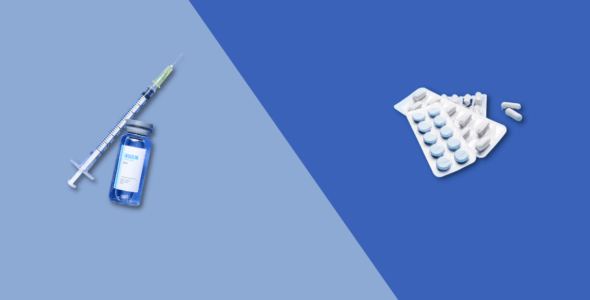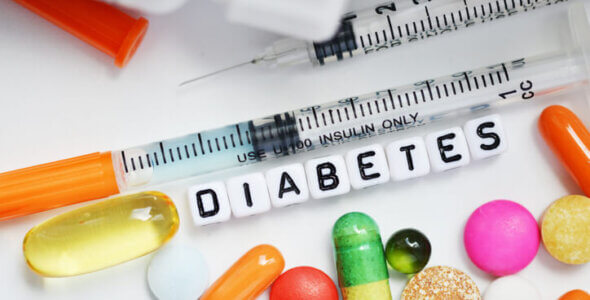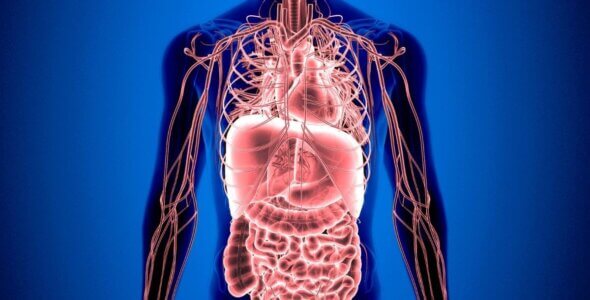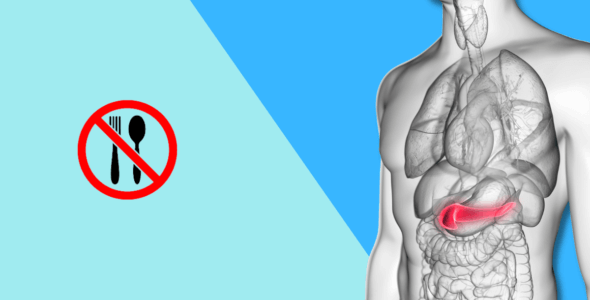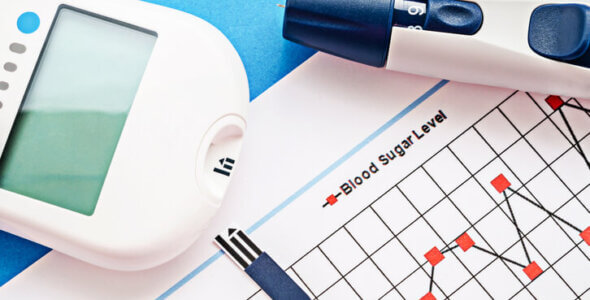Early signs of diabetes
Table of contents
How can you tell if you are – or a loved one is – developing diabetes?
It is not always easy. Diabetes symptoms can come on slowly and the warning signs of diabetes can be difficult to recognize. This is especially the case with type 2 diabetes. Type 1 diabetes symptoms usually appear and develop faster, but it can still take time to realize you have the condition.
If you are at risk of diabetes or are otherwise worried you may be developing it, it is important to know what early warning signs to look out for. To assist, here we explain what the early signs of diabetes are for both type 1 and type 2 diabetes.
Early symptoms of diabetes
Diabetes is a group of diseases that make it more difficult to absorb glucose from your blood. Glucose is released as you digest food and drink. It then passes into your bloodstream so it can be carried around your body and taken to the cells that use it for energy. This process is assisted by insulin – a hormone made by your pancreas and secreted into your blood.
If you have diabetes, this impacts the ability of your cells to absorb glucose. Specifically, your pancreas may not produce enough insulin, and/or your cells will become less sensitive to insulin (insulin resistance). This causes glucose to build up in your blood to a level that can begin to damage your body.
Having too much glucose in your blood can cause these early symptoms of diabetes:
- Tiredness: The cells of your body stop receiving as much glucose as they need. They, therefore have less energy, making you feel tired.
- Hunger: Your cells send signals saying they do not have enough glucose, which makes you feel hungry.
- Peeing more often: One way for your body to remove excess glucose from your blood is for your kidneys to filter it out. Your kidneys make more urine to get rid of this glucose and you have to pee more often.
- Thirst: Because diabetes makes you pee more often, your body loses more water, making you feel thirsty.
- Dehydration, a dry mouth, itchy skin: As your body loses more water than usual, you can get dehydrated. Signs of this include having a dry mouth and dry and itchy skin.
- Blurred vision: Having less water and fluids in your body can also cause blurring and other vision changes by making your eyes swell.
- Slow-healing cuts/sores: Diabetes can cause nerve damage which slows down how fast your body heals.
- Yeast infections: Both men and women can get outbreaks of yeast infections as the yeast feeds on excess glucose in areas of your body. This occurs most often in the mouth and armpits as well as around the genitals.
Early signs of type 1 diabetes
Type 1 diabetes is an autoimmune disorder. It is caused by your immune system mistakenly attacking the beta cells in your pancreas that produce insulin, in turn lowering how much insulin you have in your body.
It comes on quickly in most people, although the early signs of type 1 diabetes can be hard to spot or can be mistaken for something else at first. The condition most often emerges during childhood, so if you have diabetes in the family, you should watch for early warning signs of diabetes in your children.
As well as the above early symptoms of diabetes, the early warning signs of type 1 diabetes include:
- Unexplained weight loss: As your cells receive less glucose, they begin to burn fat for energy instead. This can make you lose weight even though you have not changed what you are eating.
- Nausea and vomiting: When your body burns fat for energy, your liver first converts stored fat into a type of fatty acid called ketones. The ketone fatty acids are then secreted into your blood so they can be transported in your bloodstream to your cells. If you have high levels of ketones in your blood it can make you feel sick and cause you to be sick. In severe cases, it can also lead to a life-threatening condition called diabetic ketoacidosis.
- Sweet-smelling breath: Having high levels of ketones in your blood can make your breath smell sweet or fruity.
Early signs of type 2 diabetes
Type 2 diabetes is caused by cells in your body becoming resistant to insulin (insulin resistance). This means insulin stops working as well as it should, and your cells absorb less glucose from your blood. Sometimes your pancreas also begins to produce less insulin.
Insulin resistance is caused by a mixture of genetics and your lifestyle. Your genes can make it more likely that you will develop insulin resistance, but they do not guarantee it. Sometimes genetics is not involved at all.
Type 2 diabetes is sometimes called lifestyle diabetes, as you increase your chances of developing it if you:
- Are overweight or obese
- Store fat around your stomach
- Are not physically active
- Have a poor diet that is rich in sugary food, simple carbohydrates, saturated fat, and salt
- Have high blood pressure
- Have high levels of bad cholesterol and other fats in your blood called triglycerides
- Have low levels of good cholesterol in your blood
Other risk factors for type 2 diabetes include:
- Age – specifically being over 45 years old
- A family history of diabetes
- A history of heart disease or strokes
- Being of African American, Native American, Alaska Native, Asian American, Hispanic/Latino, Native Hawaiian, or Pacific Islander descent
If you have, or a loved one has a combination of these risk factors you should look out for the early warning signs of diabetes above. It is also important to be aware of the following early signs of type 2 diabetes:
- Tingling, numbness, and pain in your hands or feet: Type 2 diabetes can damage your nerves and circulation, which can cause tingling sensations, numbness, and pain in parts of your body. This often occurs in your hands and feet at first.
- Areas of dark skin: Diabetes can cause you to develop a skin condition called acanthosis nigricans. It results in areas of dark, soft, velvety skin developing in creases on your body. This includes around your neck, armpits, groin, and around your buttocks.
- Erectile dysfunction (ED): ED is when a man cannot get or maintain an erection that is hard enough for sex. Diabetes can cause circulation and nerve problems that can make ED more likely or worse.
Getting an early diagnosis
If you have any of the early signs of diabetes or any other reason to think you have diabetes, you should make an appointment to see your doctor right away. Diabetes is a serious condition that can harm your health and lead to severe complications, such as:
- Nerve damage
- Heart attacks
- Strokes
- Vision loss and blindness
- The amputation of limbs
The good news is that diabetes can be treated and managed by making lifestyle changes and taking diabetes medications, like insulin. If you have diabetes you need to get it diagnosed as fast as possible so you can begin to treat it, to minimize the damage caused and your risk of complications.
Diabetes early warning signs FAQs
What are the 3 most common symptoms of undiagnosed diabetes?
The three most common early signs of diabetes are feeling hungrier than usual, feeling thirstier, and peeing more often.
What is usually the first sign of diabetes?
The first signs you are developing diabetes include feeling hungrier, thirstier, and peeing more than usual. Other early signs can include feeling tired, blurred vision, yeast infections, and having slow-healing cuts and sores.
Can you reverse early signs of diabetes?
You cannot reverse the early signs of type 1 diabetes, as it is an immune system disorder that cannot be cured. Treating type 1 diabetes can limit the damage it causes and reduce the risk of complications. Type 2 diabetes also cannot be cured, but by treating it you can reverse the symptoms of type 2 diabetes and help it to go into remission.
Can diabetes come on suddenly?
Type 1 diabetes can develop quickly – as fast as a couple of weeks. Type 2 diabetes can develop quickly in rare cases, but more often it develops slowly over time with symptoms emerging gradually.
Reducing your risk of diabetes complications
If you have diabetes, it is important to recognize the early warning signs and get a diagnosis as quickly as possible. The faster your diabetes is diagnosed, the sooner you can begin treating it – this will in turn reduce your risk of diabetes complications.
Keen to learn more about diabetes? Here we detail what you need to know about diabetes prevention and treatment, as well as more info on insulin and the top diabetes medications:
If your doctor has prescribed a diabetes medication to you, you may be able to receive your prescription for only $49 per month with NiceRx. Complete our online enrollment application to find out if you are eligible for prescription assistance.
Medically reviewed
A medical professional has reviewed this article.


Jamie Winn, PharmD
Jamie Winn, PharmD
Dr. Jamie Winn received his Doctor of Pharmacy in 2002 from the University of South Carolina College of Pharmacy, Columbia, SC. Jamie is a medical reviewer for NiceRx.


